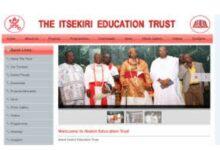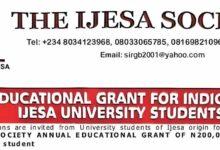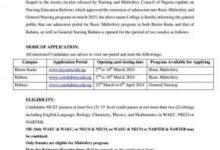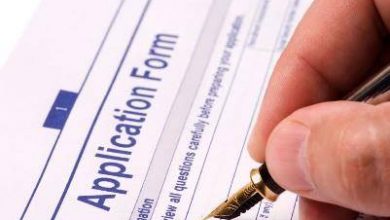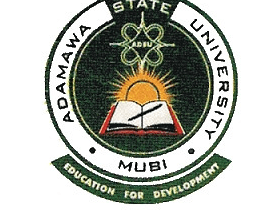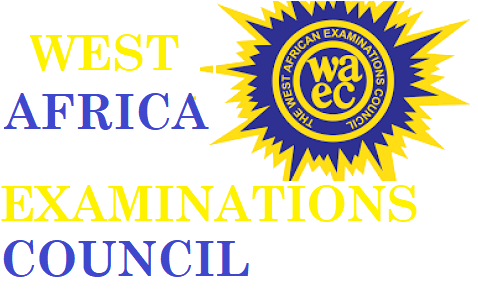
WAEC Syllabus for Data Processing
WAEC Syllabus for Data Processing. WAEC Syllabus for Data Processing is available for all candidates who want to participate in the examination. The West African examination council (WAEC) has officially introduced a syllabus that will guide all the WAEC candidates who wish to write the WAEC examination this year. For a very successful WAEC Data Processing examination for this year, you need to check out the available areas of concentration. It has been divided into sections with chapters, followed by the topics to be covered in preparation for the exams. In the WAEC Syllabus for Data Processing, you will also see the format of how the WAEC Data Processing questions will be presented. Jamb form
There are 2 sections to answer questions from. Paper 1 is Objective questions, paper 2 contains essay questions and practicals. Where paper one (1) carries 1 hour for 40 marks; paper two (2) carries 70 marks for 2hours.
👉 Relocate to Canada Today!
Live, Study and Work in Canada. No Payment is Required! Hurry Now click here to Apply >> Immigrate to Canada
This WAEC syllabus is for both the O’level WAEC and General Certificate Examination (GCE) candidates. Final year students in the senior secondary school level and external candidates are eligible to make use of this syllabus and prepare ahead of the examination. WAEC Syllabus for Data Processing
See the full detailed information concerning the WAEC Data Processing Syllabus below.
Read Also: WAEC Syllabus for Commerce
PREAMBLE
This examination syllabus is derived from the Senior Secondary School curriculum on Data Processing published by the NERDC. It is designed to test basic knowledge and skills acquisition in data processing. A conceptual approach was used in preparing the syllabus, considering areas that would encourage the development of entrepreneurial skills for everyday living. Jamb Result
This syllabus is not a teaching syllabus. It is an examination syllabus. Teachers are therefore advised to use the national teaching syllabus for the teaching-learning process.
OBJECTIVES OF THE SYLLABUS
The objectives of the syllabus are to test candidates’
- acquisition of basic skills of data processing and management;
- level of competence in ICT applications that will promote the acquisition of entrepreneurial skills for everyday living in the global world;
- knowledge in the application of ICT in facilitating business transaction and education;
- preparedness for further studies in Data Processing and Management. Dollar to Naira Rate
Read Also: WAEC Syllabus for Cosmetology
👉 Relocate to Canada Today!
Live, Study and Work in Canada. No Payment is Required! Hurry Now click here to Apply >> Immigrate to CanadaEXAMINATION SCHEME
There will be two papers, Papers 1 and 2 both of which shall be taken as a composite paper at one sitting.
PAPER 1: will consist of forty multiple-choice objective questions, all of which are to be answered in 1 hour for 40 marks.
PAPER 2: will consist of two sections: Sections A and B. Candidates will be required to answer five questions in all.
Section A: will consist of four essay questions. Candidates will be required to answer any three in 1 hour for 30 marks.
Section B: will be a test of practical work. It shall consist of two compulsory essay questions to be answered in 1 hour for 40 marks. Npower Recruitment
DETAILED SYLLABUS
| S/N | TOPICS | CONTENT | NOTES |
|
1 |
INFORMATION AGE
History of Computers |
i. Computing devices.
ii. Concept of Number system in computing.
iii. Generations of Computer: first, second, third, fourth, fifth generations of computer.
|
Candidates should identify the various computing devices since the beginning of counting/computing.
Should include the importance of number system to computing.
Relate each generation with its characteristic feature. describe each generation under the following: year of development, basic component/type of technology, speed of operation, storage capacity/component.
|
|
2 |
Data and Information |
i. Definition of data and information. ii. Types of Data. ii. Ways of handling Data. iii. Definition of Data. iv. Digitalization. Waec Result
|
Differences between data and information should be emphasized |
|
3 |
BASIC COMPUTING
Classification of Computers |
Classify computers by Type, Size, Usage.
|
|
| 4 |
Application of ICT in everyday life |
i. Uses of ICT in everyday activities. ii. Impact of ICT in the society.
|
The use and areas of ICT application should be linked to societal development. |
| 5 |
Components of Computers |
i. Input Devices. ii. Output Devices. iii. System Unit. iv. Storage Devices |
Examples of each component should be treated and how they are used in data processing. |
|
6 |
INFORMATION PROCESSING
The art of Information processing
|
i. Definition of Information Processing. ii. Steps involved in Information Processing.
|
Description of each step involved in information processing is required. |
|
7 |
INFORMATION TRANSMISSION
Process of Information transmission |
i. Definition of information transmission. ii. Methods of transmitting information. |
Modes of information transmission such as visuals(newspaper), audio(radio, telephone), audio-visual(GSM, Television) are required. |
| 8 | Medium of Information Transmission | i. Types of Information Transmission.
ii. Classification of means of transmission.
|
Medium of information transmission such as radio, television, newspaper etc. |
| 9 | Networking | i. Meaning of Networking, Internet and Intranet.
ii. Types of Networking. |
Significance of networking should be mentioned
Types such as MAN, LAN, WAN should be treated.
|
| 10 | Internet | i. Definition of Internet.
ii. Benefits of internet iii. Internet browsers iv. Internet security v. Abuse of the Internet
|
Candidates should be able to develop skills in the use of various services available on the internet |
|
11 |
TOOLS FOR PROCESSING INFORMATION
Operating System |
i. Definition of Operating System. ii. Types of Operating System. iii. Examples of Operating System.
iv. Functions of Operating System.
|
Differences between text (character) base interface and Graphical User Interface should be treated. |
| 12 | Word Processing | i. Definition of Word Processing.
ii. Uses of Word Processing
iii. Examples of word Processing software. iv. Starting, loading and exiting word processing
v. Creating, saving and retrieving documents |
Candidates should be able to make use of word processor to create and manipulate documents
|
| 13 | Spreadsheet | i. Definition.
ii. Uses. iii. Examples of Spreadsheet Applications. iv. Loading and exiting spreadsheets. v. Creating, saving and retrieving Spreadsheet files. |
Candidates should be able to make use of spreadsheet to create and manipulate worksheets
|
| 14 | Database Management System | i. Definition.
ii. Uses. iii. Examples of Database Applications. iv. Loading and exiting DBMS. v. Creating, saving and retrieving database files.
|
i. Candidates should be able to use DBMS to create and manipulate database files.
ii. Include examples of packages for database management such as Microsoft Access.
|
| 15 | Presentation Package | i. Definition, uses, examples.
ii. Loading and exiting Presentation programs. iii. Creating, saving and retrieving presentation files. |
i. Candidates should be able to use presentation programs to create and manipulate slides.
|
| 16 | Web Design Packages | i. Definition.
ii. Uses. iii. Components. iv. Examples. |
Designing of web pages not required. |
| 17 | Graphic Packages | i. Definition.
ii. Uses of Graphic software packages. iii. Examples of graphic packages. |
Focus should be placed on Corel Draw |
|
18 |
COMPUTER MAINTENANCE, ETHICS AND HUMAN ISSUES
Maintenance of Computer |
i. General Cleaning. ii. Battery Charging and replacement for portable systems and UPS. iii. DVD drive lens cleaning. iv. Details of Hardware maintenance. v. Details of Software maintenance. vi. Computer crash and data recovery. |
Candidates should take note of basic maintenance procedures.
Students should be able to ensure data integrity and recover data after a crash
|
| 19 | Computer Ethics | i. Computer room management ethics.
ii. Laboratory rules and regulations.
|
Responsible ways of using and securing computers |
| 20 | Safety Measures | i. The sitting arrangement.
ii. Positioning of the monitor, keyboard, CPU, mouse and any other peripheral devices. iii. Illuminating the computer room. iv. Maintaining a dust-free environment. v. Keep liquid away from the computer room.
|
Importance of safety measures should be emphasized. |
| 21 | Career opportunities in Data Processing | i. Professions in computer.
ii. Qualities of a good data processing professional. iii. Computer professional bodies.
|
Duties of each professional/professional bodies should be treated. |
| 22 | Computer Virus | i. Definition.
ii. Types/Examples. iii. Sources. iv. Signals of virus warning v. Virus prevention, detection and deletion. |
Destructive effects of virus infection on computers |
|
23 |
DATA MANAGEMENT
Relational Model |
i. Database and table creation using application packages.
ii. Creating relationships between tables
iii. Creation of forms, queries and report.
|
Arranging data in tables and forms should be emphasized
The concept of primary and foreign keys, entities, attributes and relationships should be emphasized.
Query language should be limited to those available to the database application package (e.g. query by example , SQL).
|
| 24 | File Organization | i. Definition of File organization.
ii. Types of File organization.
|
Comparison between the various types of File Organization is required. |
| 25 | Database Security | i. Concept of data security, access control and data encryption.
ii. Role of a database administrator.
|
Importance of securing data is required |
| 26 | Parallel and Distributed databases | i. Basic concept of parallel and distributed database.
ii. Storing data in a distributed database (DBM)
|
Definitions of concepts is required
Significance of storing data in a distributed database management system is also required. |
Read Also: WAEC Syllabus for English Language
LIST OF FACILITIES AND MAJOR EQUIPMENT/MATERIALS REQUIRED
The table below shows the minimum requirement for a class of fifty candidates.
| ITEM NO. | EQUIPMENT | QUANTITY REQUIRED |
|
1 |
Pictures/Charts showing different computing devices and other relevant information such as computers in a network |
5 |
|
2 |
Computer system with Graphical User Interface (GUI), internet-ready system; |
5 |
|
3 |
Standard software packages such as Open Office, Microsoft office etc.(Latest version is desirable) |
1 |
|
4 |
Multimedia systems and applications such as projector, speakers |
1 |
|
5 |
Graphic packages such as corel draw. |
1 |
Check and confirm: How Much is Dollar to Naria Today
